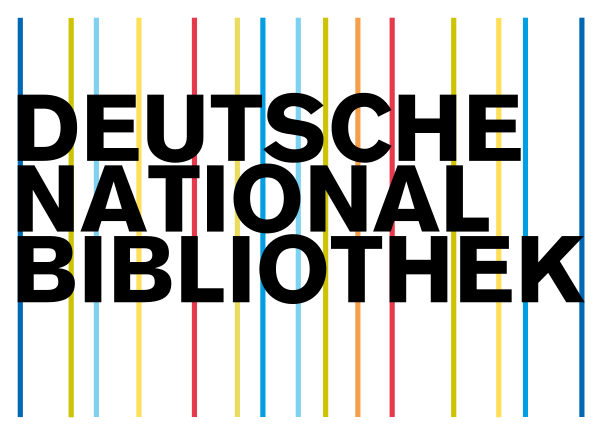Physical Unclonable Design for Key Generation for AES Encryption Algorithm
DOI:
https://doi.org/10.5281/zenodo.6544071Keywords:
Cryptography, Advance Encryption Standard, Physical Unclonable FunctionAbstract
The cryptographic techniques often stored on hardware devices are easy to hack as the keys required for encrypting or decrypting the data must be stored along with the architecture on hardware. This increases a necessity to develop an alternative to key-storing problem. As a solution, a physical unclonable function is proposed. Physical Unclonable Function are circuits which are made up of simple logic devices which are easy to analyse, but it is hard to predict the outputs of such systems. These circuits will be used for key generation for the Advanced Encryption Standard algorithm for data hiding, as part of the proposed project work.
Downloads
References
Mahin Anil Kumar and Ramesh Bhakthavatchalu, “FPGA based delay PUF Implementation for security applications”, Department of electronics and communication engineering, Amritha Vishwa vidhyapeetam, Amritapuri, kerala, India, 2017 IEEE International Conference on Technological Advancements in power and Energy(TAP Energy), 978-1-5386-4021-0/17/$31.00 (c)2017 IEEE.
Likhithashree R and Divya Kiran , ”Area – Efficient Physically Unclonable Functions for FPGA using ring oscillator”, Department of ECE, Ramaiah University of Applied Sciences, Bengaluru, India, Proceedings of the Second International conference on Innovative Mechanisms for Industry Applications(ICIMIA 2020), 978-7281-4167-1.
Erik sargent and Weston Jensen,” Authentication using a Physically Unclonable Function”, Utah state University Department of electrical and Computer Engineering.
Likhithashree R and Diva Kiran, “Design of Power-Efficient Ring Oscillator based Physically Unclonable Functions for FPGA”, Ramaiah University of Applied Sciences, Bengaluru, India, 2019 4th international conference on Electrical, Electronics, Communication, Computer technologies and Optimization Techniques (ICEECCOT), 978-1-7281-3261-7/19/$31.00 (c)2019 IEEE.
Tatsumi Tanamoto, Shinich Yasuda, Satoshi Takaya and Shinobu Fujita,”Physically Unclonable Function using Initial Waveform of Ring Oscillators”, Corporate R & D center, Toshiba corporation, Saiwai-Ku, Kawasaki 212-8582,Japan, 1549-7747 (c)2016 IEEE.
Alexander spenke, Ralph Breithaupt and Rainer plaga,”An arbiter PUF secured by remote random reconfigurations of an FPGA”, Hochschule Bonn-Rhein-Sieg,53757 Sankt Augustin, Germany, federal Office for information Security(BSI), 53175 Bonn, Germany, 12 Oct 2016.
Jeeson Kim, Taimur Ahmed, Hussein Nili, Jiawei Yang, Doo Seok Jeong, Paul Beckett, Sharath Sriram, Damith C.Ranasinghe, and Omid Kavehei, “A Physical unclonable Function with Redox-based Nanoionic Resistive Memory”, RMIT University, 15 NOV 2016.
Muthumeenakshi.N, Hari Prasath Sharma.S, farjanaaameera.M, Rajaprabha.R,” VLSI Design of Low Cost(PUF) Physical unclonable Function Using FPGA and Highly Secured Clock Network”, IOSR Journal of VLSI and signal Processing (IOSR-JVSP), Jan 2014.
ye wang, Xiaodan Xi, and Michael Orshansky,”Lattice PUF: A Strong Physical unclonable Function Provably Secure against Machine learning attacks”, Department of Electrical and
Computer engineering, The University of Texas at Austin, USA, 16 Jun 2020.
Sangjae Lee, M-Kyung Oh, Yousung Kang, and Dooho Choi, ”Implementing a phase detection ring oscillator PUF on FPGA”, Information Security Research Division, Electronics and Telecommunication Research Institute, Daejeon, Korea, 978-1-5386-5041-7/18/$31.00 (c)2018 IEEE.
Seda arslan Tuncer,” Real-Time Random Number Generation with Ring Oscillator Based Double Physically Unclonable Function”, Firat University, Department of Software Engineering, Elazig, Turkey, 2018.
Armin Babaei and Gregor Schiele,”Physical Unclonable Functions in the internet of Things: State of the Art and Open Challenges”, Embedded Systems Group, Faculty of Engineering, University of Duisburg-Essen,47048 Duisburg, Germany, 2019.
N. Sivasankari and A.Muthukumar,”Implementation of a Hybrid Ring Oscillator Physical Unclonable Function”, Department of Electronics and Communication Engineering, Mepco Schlenk Engineering College, India and Kalasalingam university, India ICTACT Journal on Microelectronics, July 2018.
A.Poorna chander Reddy, Dr.M. Siva Kumar, B. Murali Krishna, Syed Inthiyaz and Sk. Hasane Ahammad,” Physical Unclonable function based Design for Customized Digital Logic circuit”, Department of ECE, Koneru Lakshmaiah education foundation, Vaddeswaram(A.p), India, (c)2019 IJAST.
Wenjie Xiong, Andre Schaller, Stefan Katzenbeisser, and Jakub Szefer,”Dynamic Physically Unclonable functions”, Yale University, New Haven, CT, USA and Technische Universitat Darmstadt, Darmstadt, Germany, 2019
Jiliang Zhang ,Gang Qu,”Physical Unclonable Function – based key Sharing via Machine Learning for IoT Security”,IEEE Transactions on Industrial Electronics,21 Aug 2019.
Yi Zhang, Min Zhu, Bohan Yang, Leibo Liu,” A Highly Reliable Strong Physical Unclonable Function Design Based on FPGA”, Institution of Microelectronics, Tsinghua University, Beijing, China,13th International conference on Computer and Electrical Engineering, 2020.
Teng Xu and Miodrag Potkonjak,”Robust and Flexible FPGA-based Digital PUF”, Computer Science Department ,University of California, Los Angeles , 2014.
Chongyan Gu, Weiqiang Liu, Yijun Cui, Neil Hanley, maire O’Neill, Fabrizio Lombardi,”A Flip-Flop Based Arbiter Physical Unclonable Function (APUF) Design with High Entropy and Uniqueness for FPGA implementation” centre for Secure information technologies(CSIT), Institute of electronics, communications & information technology(ECIT),2019.
Cedric Marchand, Lilian Bossuet, Ugo Mureddu, Nathalie Bochard, Abdelkarim Cherkaoui, Viktor Fischer, “Implementation and characterization of a physical unclonable function for Iot: a case study with the TERO-PUF”, Hubert Curien Laboratory, Prof.Lauras, St-Etienne, France, TIMA Laboratory, Avenue Felix viallet, Grenoble, FRANCE (c)2017 IEEE.
Downloads
Published
How to Cite
Issue
Section
URN
License
Copyright (c) 2022 Perspectives in Communication, Embedded-systems and Signal-processing - PiCES

This work is licensed under a Creative Commons Attribution 4.0 International License.






